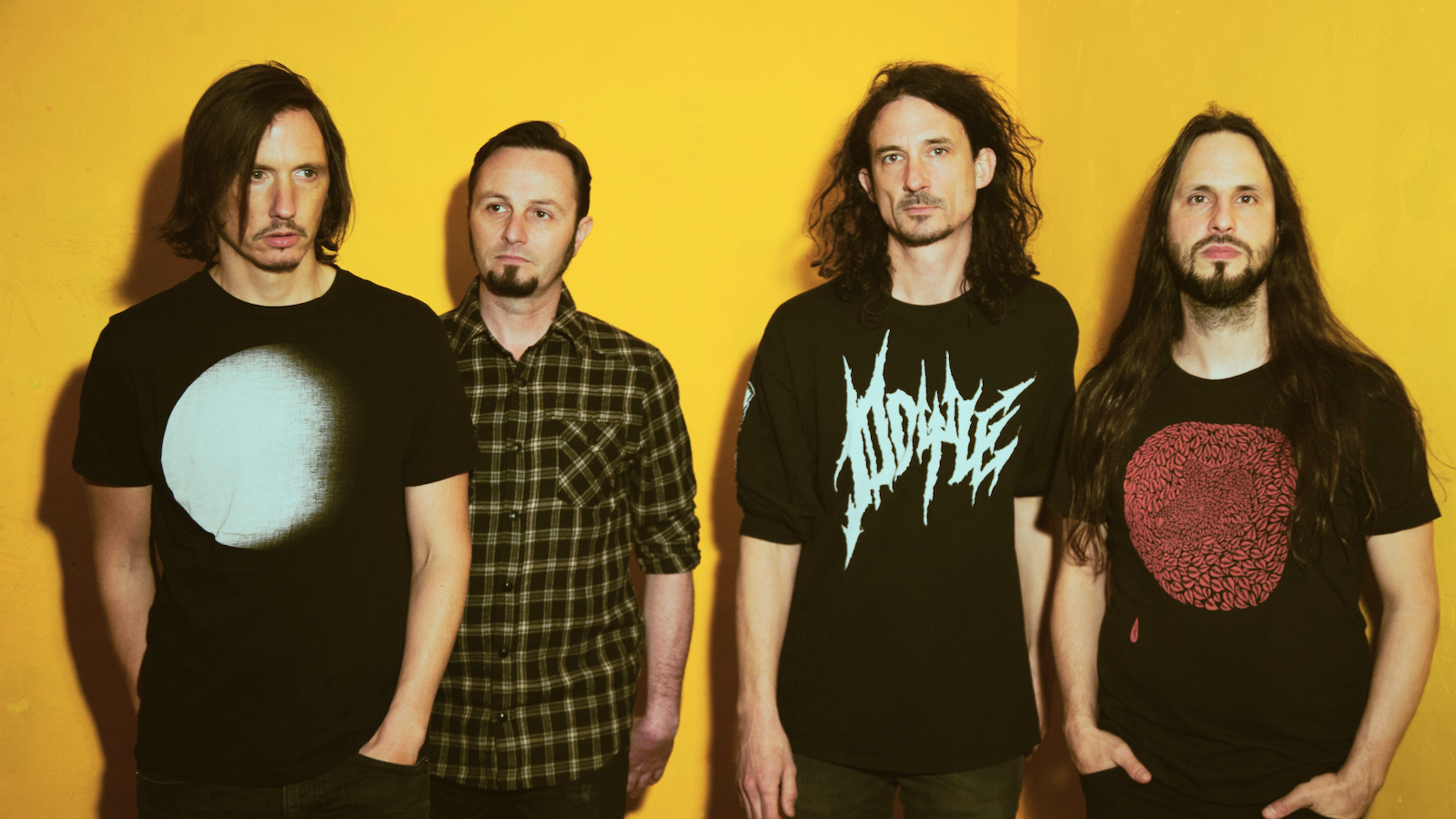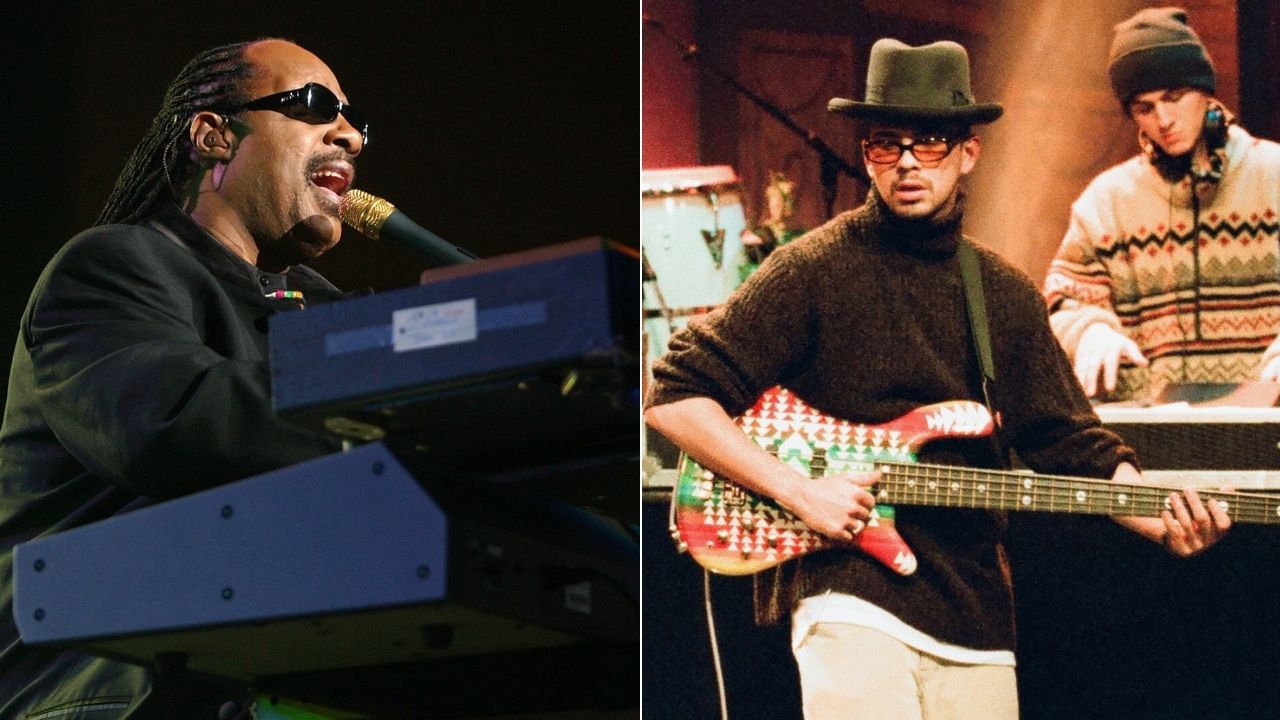Gojira’s Joe Duplantier: “I think humans are pretty shitty sometimes, but we’re as horrible as we are incredible”
The modern metal titans in Gojira take aim at the root of all evil on their convulsive new album

From the perspective of your average, casual music fan – think the suburban mum sees P!nk as the pinnacle of rock music, or the stock-trading suit who swears songwriting peaked with The Beatles – metalheads are the human embodiment of recklessness and depravity. But look past the gory and gristly aesthetics and you’ll find one of the friendliest, most sympathetic and benevolent communities on the planet. Wherever tragedy strikes, you can be sure to find at least one long-haired brute in a ragged Metallica shirt ready to help out.
Notably so in recent years, progressive activism has become a cornerstone of the heavy music scene. Case in point: French groove-metallers Gojira, who’ve long championed environmental causes with their equally emotive and explosive shreddery. Their seventh album, Fortitude, looks to mobilise mosh-fiends around the world to fight for their freedoms, uphold equality and make their voices heard to secure a future for their planet. It’s a notably optimistic record for the band, too, adding to their standard fare of cataclysmic riffs and punishing breakdowns a summery slant of melodic buoyancy.
As lead vocalist and rhythm guitarist Joe Duplantier tells Australian Guitar, Gojira’s modus operandi was to take listeners on a uniquely energetic and kaleidoscopic journey with Fortitude.
How did your approach to the guitars differ on this record? Were you excited to explore any new techniques or playing styles?
Yeah! I’m constantly searching for and experimenting with new ideas. I think the production for this album was the most exciting, for me, because of all the experimentation I did in the studio. I would try a certain guitar with a certain amp for a certain part. I played a solo, for example, and there was this buzz coming from the guitar that we couldn’t get rid of – so I ended up taking an old string, attaching it to the bridge of the guitar and putting it in my mouth. That was the only way I could get rid of the buzz – I became the ground wire! Sometimes when you’re using old gear, you have to use weird tricks.
It was mostly just having a blast trying a lot of different pedals and instruments, and committing new ideas to memory as we were recording. There are a few really big solos on this record, which is pretty new for Gojira. It’s about having fun, but also trying to create something powerful – we want to be melting faces [laughs]. That’s very important for us. We want to make a f***ing impression! Nobody plays our music when they’re having a cocktail, y’know?
How did you want this record to best represent what Gojira is and means, and stands for in the present day?
Every album is a statement, so to speak – it’s about what we want to see and what we want to do. And it’s a much different story when you release your seventh album than when you release your first. Somehow your first album will define you, nobody’s waiting for you, you have this opportunity to maybe surprise people – or to make absolutely no noise at all. You never know what’s going to happen with a first album, right? But with a seventh album, when everybody’s waiting for what you’re going to do, the approach is a bit different. We wanted to express something positive, colourful, flamboyant, intense, luxurious… Y’know, I think we wanted to be generous with this album, from a certain perspective – we give you a lot of melodies and explore a lot of crazy ideas. It’s a trip.
I saw that Kerrang! interview where you said you wanted this album to be more outgoing and joyful, and I think that really comes across on the record. Where did that newfound sense of optimism come from?
It’s a choice by default, y’know? It’s easy to be cynical or depressed about humanity. But if you choose to look at the bad things, you’re going to have a bad day. If you look at the beautiful things around you, you’re going to have a great day. And there’s a lot of beautiful things around us! But that being said, Fortitude is not just a positive album – there’s a lot of anger, still, there’s a lot of turmoil and it’s a bit stormy at times. But especially after Magma, yeah, the contrast is overall more joyful and more celebratory.
All the latest guitar news, interviews, lessons, reviews, deals and more, direct to your inbox!
We decided to have fun. And I think that’s the point. When we talk about joy, it doesn’t really translate to the music itself – for somebody who has no clue who we are, they’re not going to find this joyful like an ABBA album. But it’s an invitation to be strong and to stand together – even if at times I don’t believe myself when I say that, because I think humans are pretty shitty sometimes, we’re as horrible as we are incredible.
Well, look at all these protests happening around the world – they’re fuelled by anger, 100 percent, but that anger is rooted in a determination to make positive changes in the world.
I think that’s very important – we need to protest. Even if there’s nothing to complain about, we still need to go out in the streets and make ourselves heard. That’s the French way, my man – every September, every year, we’re all out there in the streets. What are we angry about? I dunno! But let’s do it! [Laughs]. But yes, that’s the purpose of the whole thing – if you’re angry by nature, it’s like okay, whatever, what’s the point?
For example in Brazil, people don’t protest that much – they’re not known to go out in the street and use their voices, and that leads to someone like [Jair] Bolsonaro taking charge. I think we need to find a balance – and it’s not only about protesting, either. It’s also the inner revolution, y’know? The potential that is underlying within you.
Every second, you have the opportunity to change something for yourself. We have the power. And it’s an illusion to think that we don’t – that “the president” has the power. Because if you decide to buy a certain way – if you decide to pay attention to where things are built, for example, and you don’t want to promote a crazy dictator who is out of his mind and exploiting the children of his country, don’t buy the shit that comes out that country! Because when you do, you become the problem.
It’s a cliche to say, “We are manipulated! They do this, they do that!” You know this famous ‘they’? ‘They’ is us, y’know? We are ‘they’ creating ‘them’ – the demand creates the disaster. And I know it doesn’t sound very metal – I get it. But the way you consume is super important, as is the way you talk to people and the way you act. That’s the core of my message: we can do things to change the world!
To give you an example: we felt bad about the fires in the Amazon, seeing all those forests burn to the ground two years ago, so we decided to do something with the release of our single “Amazonia”. We ended up talking to some of the indigenous tribes that live in the Amazon, and we were really shocked to learn that the indigenous were – and are – under attack. So we just said, “Damn, let’s do something!” Of course we have a band and we have fans to rally around us, but even if we didn’t, we could have gathered support for that cause.

Ellie Robinson is an Australian writer, editor and dog enthusiast with a keen ear for pop-rock and a keen tongue for actual Pop Rocks. Her bylines include music rag staples like NME, BLUNT, Mixdown and, of course, Australian Guitar (where she also serves as Editor-at-Large), but also less expected fare like TV Soap and Snowboarding Australia. Her go-to guitar is a Fender Player Tele, which, controversially, she only picked up after she'd joined the team at Australian Guitar. Before then, Ellie was a keyboardist – thankfully, the AG crew helped her see the light…
